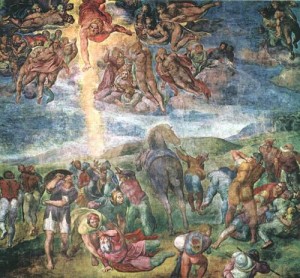Ephesians 5:8-14
This text is used for the Lectionary Year A on March 26, 2017.
 Paul has exhorted believers to shun sexual immorality, greed, or any kind of impurity for these are unfit to God’s people; besides, they provoke God’s wrath (5:3-6). So, they ought to disassociate themselves from disobedient people (v. 7). It is not clear to what degree believers should distance themselves from immoral and greedy people. Should they have no contact with them or simply not share in their immoral behaviors? In 5:8-14 he provides an additional motive for avoiding said misconducts and associations, which are discordant with their new identity. The pericope cuts off the reading before Paul’s more general advice regarding how believers ought to conduct their lives in a society influenced by evil (5:15-33), but the preacher should have them in mind.
Paul has exhorted believers to shun sexual immorality, greed, or any kind of impurity for these are unfit to God’s people; besides, they provoke God’s wrath (5:3-6). So, they ought to disassociate themselves from disobedient people (v. 7). It is not clear to what degree believers should distance themselves from immoral and greedy people. Should they have no contact with them or simply not share in their immoral behaviors? In 5:8-14 he provides an additional motive for avoiding said misconducts and associations, which are discordant with their new identity. The pericope cuts off the reading before Paul’s more general advice regarding how believers ought to conduct their lives in a society influenced by evil (5:15-33), but the preacher should have them in mind.
According to Paul, believers now have a new existence. Once “darkness” characterized their lifestyle, now “light” does (v.8). It is clear that the source of their new existence is “in the Lord.” This recalls Jesus’ self-declaration of being “the light of the world,” where he uses darkness-light conversion metaphor (John 8:12; 12: 35-36). Similarly, in v.8 believers have a new life as “children of light” and should walk in a way that reveals the light they now are in Christ. Paul is setting the basis for his view that Christ-enlightened persons can have a transforming effect on darkened lives (vv. 11-14). Here Paul emphasizes his pre-conversion and post-conversion contrast (2:2-4, 11, 13).


